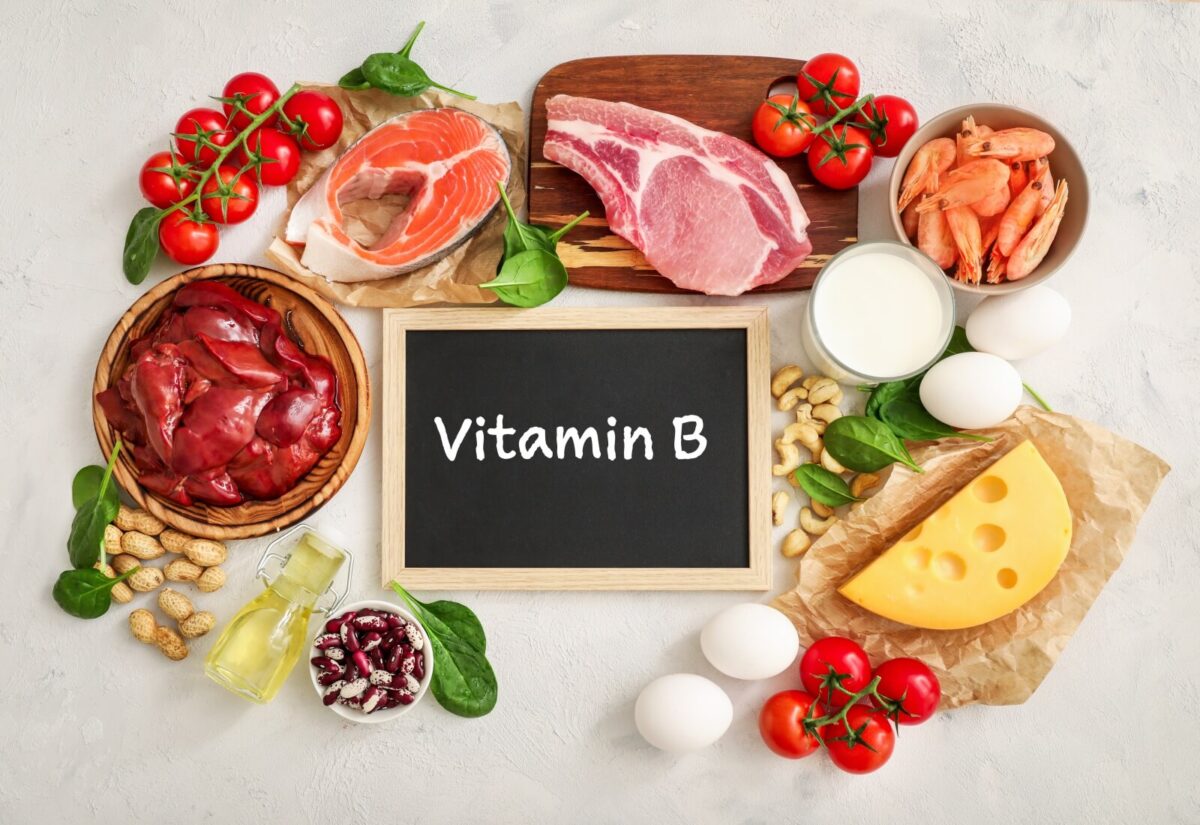Does Vitamin B Help with Weight Loss?

In a world where fad diets and weight loss pills are a dime a dozen, the quest for effective weight management can often feel like an endless journey. One particular element in the realm of nutrition that has gained significant attention is vitamin B.
But does vitamin B really help promote weight loss, or is it just another wellness trend? Let’s dive into this topic and uncover the truth.
Understanding the Vitamin B Complex
Before we delve into the potential link between vitamin B and weight loss, it’s essential to grasp the significance of the vitamin B complex. The vitamin B complex contains eight water-soluble vitamins:
Vitamin B1 (Thiamine)
Vitamin B1 has many health benefits. It helps boost energy production and minimizes the risk of heart disease. This B vitamin is also great for diabetics as it is linked to improving insulin and blood sugar levels.
Vitamin B2 (Riboflavin)
Vitamin B2 converts carbohydrates into energy and helps maintain a healthy liver and digestive system.
Vitamin B3 (Niacin)
Vitamin B3 can improve cholesterol levels. It can increase the production of good cholesterol and lower levels of bad cholesterol.
Vitamin B5 (Pantothenic Acid)
Vitamin B5 is critical to the body’s production of red blood cells. It also helps support a healthy digestive tract and synthesize cholesterol.
Vitamin B6 (Pyridoxine)
Aside from its ability to metabolize key nutrients and create red blood cells, Vitamin B6 may help prevent and treat anemia too.
Vitamin B7 (Biotin)
Vitamin B7 is great for your hair and skin, but it’s also used to reduce blood sugar levels, total cholesterol, and blood fats (but not insulin) in diabetics.
Vitamin B9 (Folate)
Vitamin B9 plays a vital role in RNA and DNA synthesis. Additionally, vitamin B9 increases your appetite when needed, so high or low levels of vitamin B9 may cause appetite loss or increase, causing you to eat when you don’t need to.
Vitamin B12 (Cobalamin)
Vitamin B12 is a water-soluble vitamin that’s gained attention in the weight loss world due to its role in energy production. It’s often included in weight loss shots and supplements, with claims that vitamin B12 can help boost metabolism and aid in shedding pounds and fat loss.
However, the scientific evidence for claims about whether vitamin B12 injections for weight loss are effective remains inconclusive.
Health Benefits of Vitamin B
Energy Metabolism
One of the key functions of the vitamin B complex is its role in energy metabolism. These vitamins help convert the food we eat into energy, which our bodies use for various physiological processes. They are involved in the breakdown of carbohydrates, proteins, and fats, ensuring that our cells receive the energy they need.
Weight Management
Here’s where the potential link between vitamin B and weight loss comes into play. Since B vitamins are essential for efficient energy utilization, it’s theorized that a deficiency in these vitamins could lead to decreased metabolism and weight gain.
However, it’s essential to remember that a vitamin B deficiency is just one of many factors that can influence weight.
Can’t seem to keep the weight off? Sign up to get our 5 Weight Loss Tips and 5-day email course, free.
Is Vitamin B Deficiency Common?
B vitamin deficiencies are relatively uncommon in well-balanced diets, but they can occur in individuals with certain medical conditions or dietary restrictions that prevent them from getting enough vitamin B.
Can Taking Vitamin B Supplements Help You Lose Weight?
While some B vitamins are involved in metabolism, taking vitamin B supplements alone is unlikely to cause significant weight loss. A balanced diet that includes a variety of foods rich in B vitamins is the most effective way to ensure you’re meeting your nutritional needs.
Foods containing large amounts of vitamin B include:
- Lean meats
- Dairy products
- Leafy greens
- Whole grains
Potential Risks of Vitamin B Supplementation
Before rushing to supplement with vitamin B, it’s essential to be aware of potential risks. Excess intake of certain B vitamins, particularly B6 and B12, can lead to adverse effects, including nerve damage and gastrointestinal issues. It’s crucial to follow recommended dosages.
Consult a healthcare professional before adding any dietary supplements to your daily regimen.
Conclusion
In the pursuit of weight loss, vitamin B may play a supporting role by contributing to a well-functioning metabolism. However, it’s not a miracle solution for shedding excess pounds. A healthy diet and exercise remain the cornerstones of effective weight management.
To learn more about vitamin B and weight loss, contact Lifelong Metabolic Center today.


